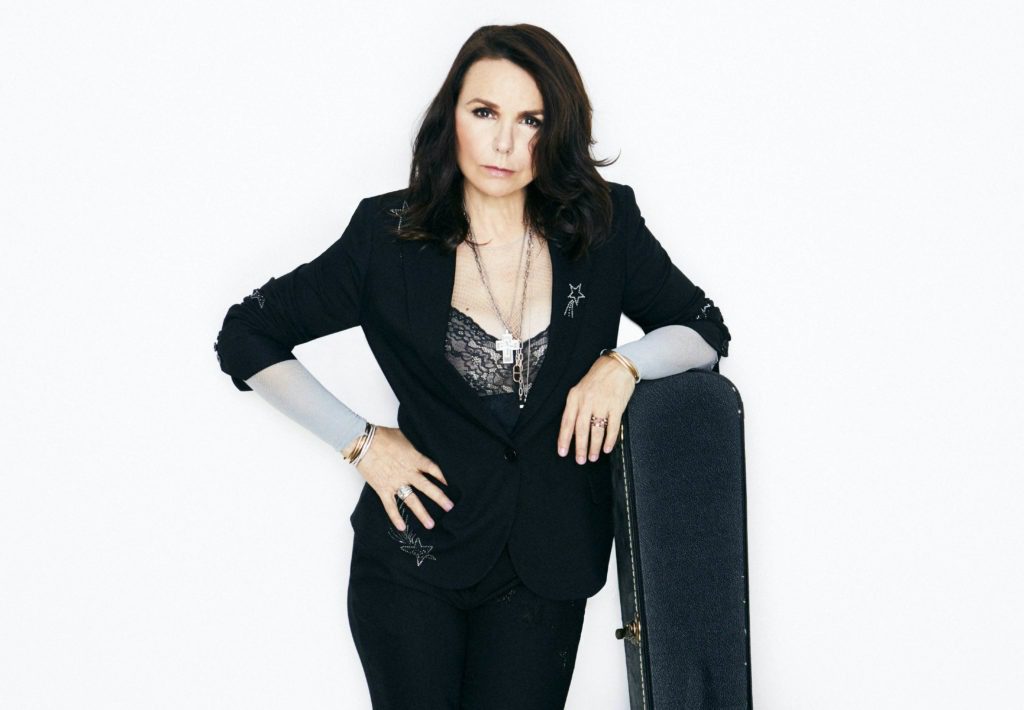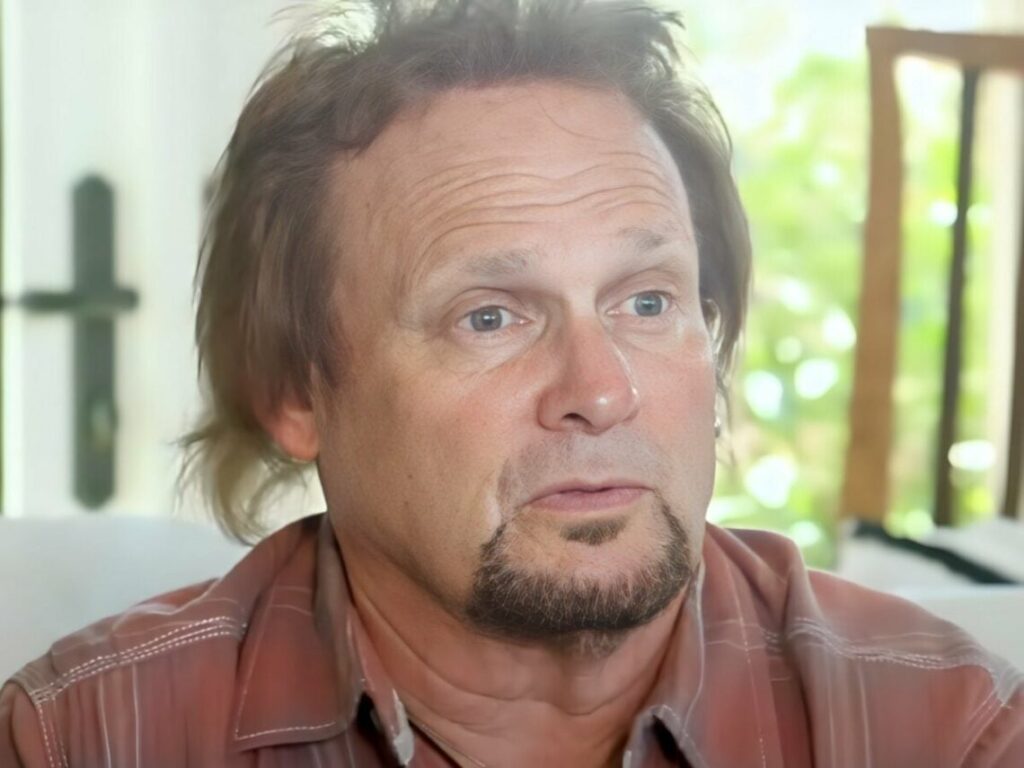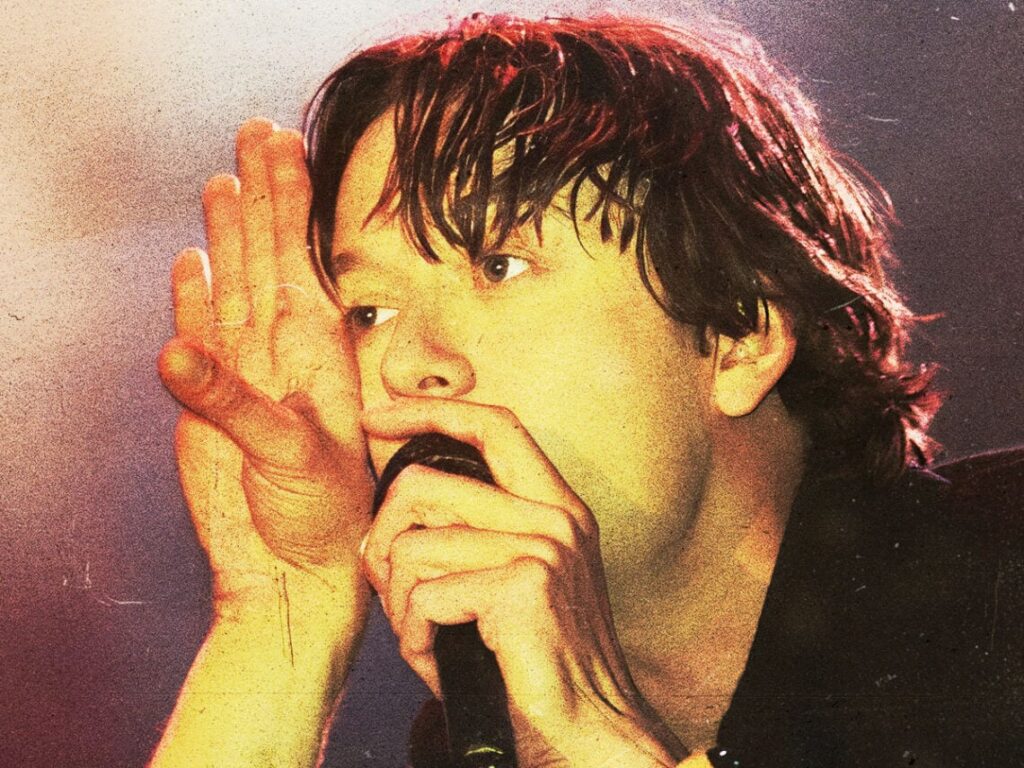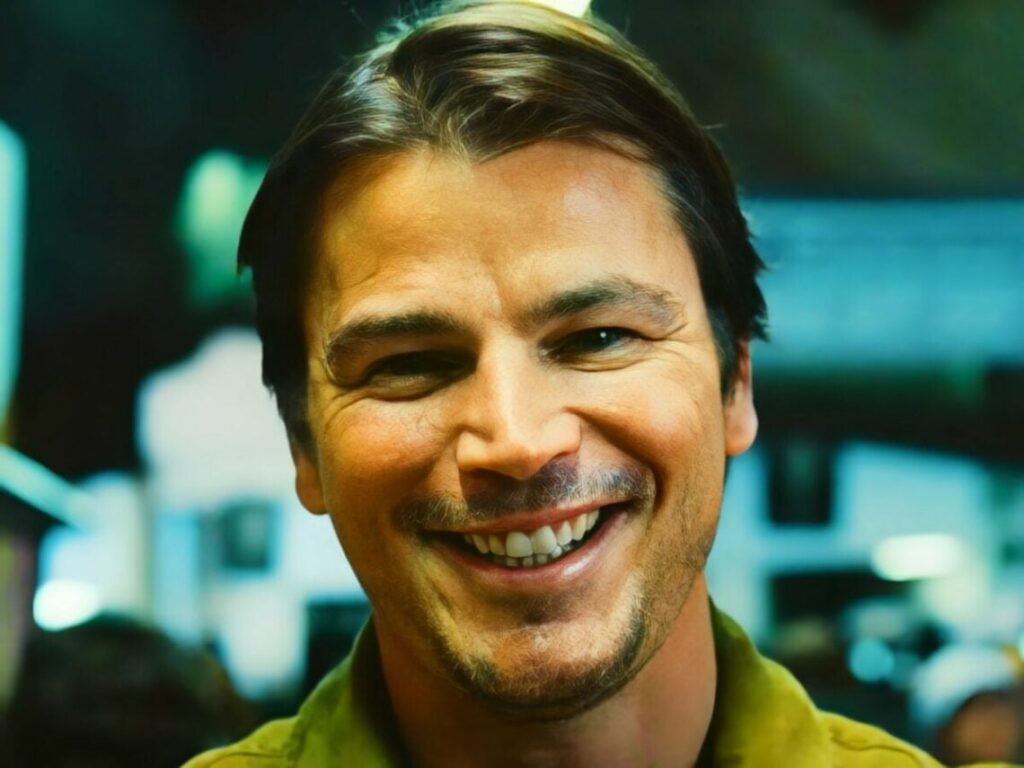Patty Smyth Talks Doing the Theme Song for a Show She's Never Watched
 Posted On
Posted On
There isn’t anything quite like hearing a radio hit from one’s youth revamped as the theme to a hit TV show. Yet that is what so many folks of a certain age have collectively experienced upon binge-watching three seasons (and hopefully counting) of the acclaimed Netflix series G.L.O.W. And no better tune has inspired Americans to forgo the “Skip Intro” button than Scandal’s anthemic 1986 hit “The Warrior,” whose infectious riff immediately gets you into the mood for some meta-comedy about a meta-sport.
“Yeah, it’s always fun singing that line,” laughs singer Patty Smyth about the most well-known single from her time as the powerhouse frontwoman of the New York-based hard rock group who first hit the scene with their 1982 single “Goodbye to You,” the natural bridge between Blondie and Pat Benatar.
Smyth has yet to check out G.L.O.W., but has it queued up to watch ahead of It’s About Time, her first new album of original solo material in 28 years, which is out in October. Produced by longtime friend and acclaimed Nashville hitmaker Dann Huff, formerly of hard rock outfit Giant but is now behind hit records for Keith Urban, Martina McBride, Taylor Swift, and Faith Hill among others, Smyth’s third non-holiday solo LP is a seamless transition from the country-soul styling she was developing on her 1992 eponymous title. Only on It’s About Time, songs like lead single “Drive” and “Build a Fire,” an earlier song she revamped in honor of her husband, tennis legend John McEnroe, are graced by the experienced resolve of an artist bold enough to step away from the spotlight to raise a family. Ms. Smyth spoke to SPIN via phone from her Los Angeles home about dipping into everything from country to R&B to turning down Van Halen’s offer to make her lead singer.
SPIN: How are you guys doing out there amidst the flux of COVID-19 cases in California?
Patty Smyth: It’s crazy. The numbers are going up here. I think more people are getting tested. But it’s been nice quality time with the family, even though the whole world is on fire. It’s a weird dichotomy.
Scandal first got started in New York in the early ’80s but did the band ever get to play any of the clubs downtown like CBGB or the Mudd Club?
We got signed pretty fast. When I got together with Scandal, we got picked up right away, so we didn’t get to play too many clubs because we went right into the studio.
Do you find it interesting to see how much the music of the ’80s has been inspiring and informing a lot of the current trends in pop, R&B and rock these days?
There was a lot of bad shit in the ‘80s as well, let’s be honest [Laughs]. I also think there was the opposite as well, because there were so many fucking great players in the studio recording on these songs, too. And even though guys like Phil Collins and Eric Clapton were elder statesmen at that point, they were still playing a lot. Plus, the decade spawned a lot of great guitar players like Eddie Van Halen and Steve Stevens. So there were all these great musicians, but they got washed out by hair bands and goofy videos. Lord knows, “The Warrior” is a goofy video [Laughs]. I feel like the record companies worked overtime to make shit a lot goofier than it was. But then again, if you think about the Clash, they were always great even throughout the ‘80s [via Big Audio Dynamite and Joe Strummer’s solo career]. But I feel they were great players who maintained their own identities. Same with Midnight Oil, there was some great stuff in there as well.
Speaking of Eddie, do you ever think about what a Patty Smyth-led Van Halen album could’ve sounded like?
You know, I regretted it for a while, but then I didn’t. My life turned out great. I wouldn’t have written all of the songs I had been writing if I joined that band then. It all worked out. But it would have been great to do a record with Eddie. He’s such a great guy. But yeah, for a while there I would ask myself, ‘Why didn’t I do that?’ Especially during some of my lean years. Then you turn around and realize you are right where you are supposed to be.
When you were working on 1992’s Patty Smyth album, how much was your work rooted in the sound of the country music scene of that time, like Mary Chapin Carpenter and kd lang?
Not really much at all. My songs dictate what happens, and in the case of “Sometimes Love Ain’t Enough” in particular, it just came out as a country song. I don’t know why. It wasn’t how I meant to write it. It came quickly and I knew this might have been the best song I’d ever written. On that album, I was actually trying to go with more of a swing factor, with a groove on songs like “Shine” and “My Town,” where I was trying to make it more R&B. That album was a little more polished than I wanted it to be. But there are great players on it. But it came out right at the beginning of when grunge started. the timing wasn’t the best, in a way. And people didn’t see me as a singer-songwriter even though I was a singer-songwriter.
Was there anyone from the grunge era that you were into back then?
I really liked Chris Cornell. That man was unbelievable. He was such a great singer, and the songs were great and the lyrics as well. I come from music and melody and voices. So there were a lot of bands back then who had a great energy, but they didn’t speak to me because they lacked the melodies or the voices. There are some exceptions to that rule. They might not have had a great voice, but they were great song stylists. I felt like a lot of the punk bands, even the ones from way back in the day, were essentially art students who were experimenting with music. Sometimes it was great, like with Talking Heads. But I live in my own world. I love R&B music. I love country music. I’m more into older music, so I really didn’t go for a lot of the New Wave and punk stuff. It all seemed too white, to be honest.
How far back do you go as a fan of R&B music?
From when I was a kid I loved R&B music. My school in Queens had been segregated for a long time, and then bussing started around the time I was going to school there. I remember bringing in the 45 of “I Want You Back” by the Jackson 5, and kids would give me so much shit for that. But then I became best friends with this one girl Valerie. We would all listen to music in gym class, and the black girls couldn’t believe I brought that record into school. They would usually have to sit through The Doors or whatever. Then I slipped out “I Want You Back” and everyone started dancing in the gym.
What inspired you to cover Bobbie Gentry’s “Ode to Billie Joe”?
I was nine when I first heard “Ode to Billie Joe.” I vividly remember playing that song over and over again as a kid. So I first got the chance to cut it on my friend Tom Scott’s album in 1999 with the LA Express. And it’s a great version, but we did it on his record. I’ve been playing it out live, and people really seem to like it so I decided to do a groovy studio version of my own. That was the first song with a story that resonated with me. It came out the same year as “(Sittin’ On) The Dock of the Bay”…just so many great songs came out that year. I think about the songs that built me, and “Billie Joe” is one of them.
There are a lot of theories about that song…
But you know what she said about it? She said the song was really about how apathetic her family was acting and talking after what had happened. This was her childhood friend, either her boyfriend or best friend. Whoever he was, it was someone close to her. And how they discussed it with so little emotion or care for what had happened affected her. So it wasn’t a matter of what had been thrown off that bridge, but her family’s reaction to it and talking about it like it was nothing.
What inspired you to revise your version of Tom Waits’ “Downtown Train”?
I never liked the production of the version I did in 1987 on Never Enough. But people kept asking me for it when I play live, and I would try and perform it but couldn’t stand it. So I took it down to Nashville to record it with Dann Huff. I’ve always loved that song, and Bill Whitman–who was the co-producer and engineer of the Never Enough record in ’87 —he brought that song to my attention. He was a great song finder. And being a Brooklyn girl, it just struck every chord.
When did you first find out “The Warrior” was going to be the theme song for G.L.O.W.?
Because I didn’t write “The Warrior” — Holly Knight wrote it — I wasn’t even contacted about it. Then I started hearing from people that it was the theme song. I haven’t watched it, but people love the show and I thought that was great. Clearly I’m gonna watch the show tonight, because the chicks are tough in it, and I like that. They are badasses.
Even though it is based in the ‘80s, the show really does resonate with a lot of very real issues about sexism in entertainment currently in the process of being ripped out root and stem by this new generation of women.
I’m happy we are all around to see that sexual harassment is out in the light. It’s not gonna be something we have to deal with, because every single chick I know has experienced it in one way or another. But we just dealt with it. The difference, for me, was I didn’t really want a job that bad. There was nothing I wanted that bad where I would compromise my body. I know it could have been easy. And I count myself lucky, because I could have been hanging out with the wrong person at the wrong time and not been able to defend myself, especially if we were drinking or partying. Anything could’ve happened, which makes me grateful to see real change coming and it’s not just a hashtag.



